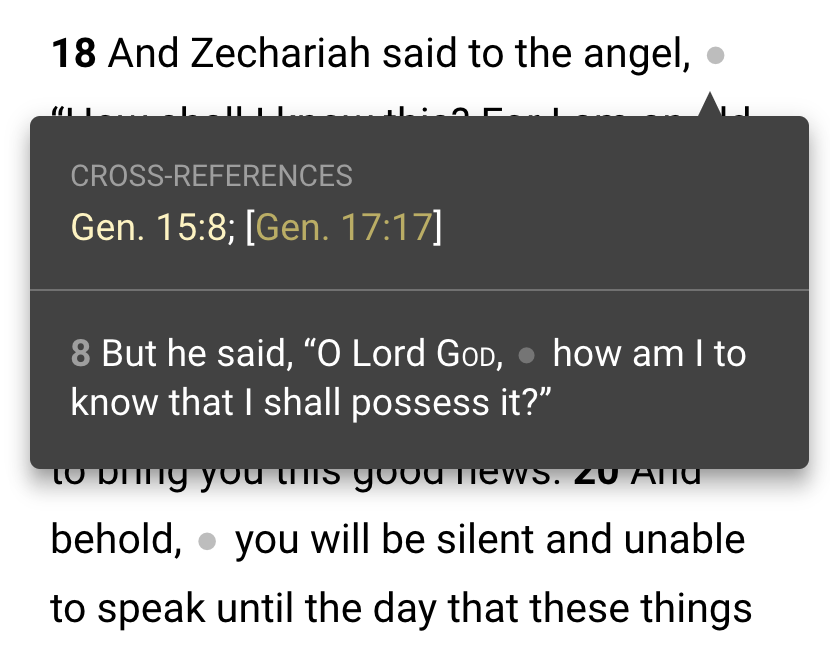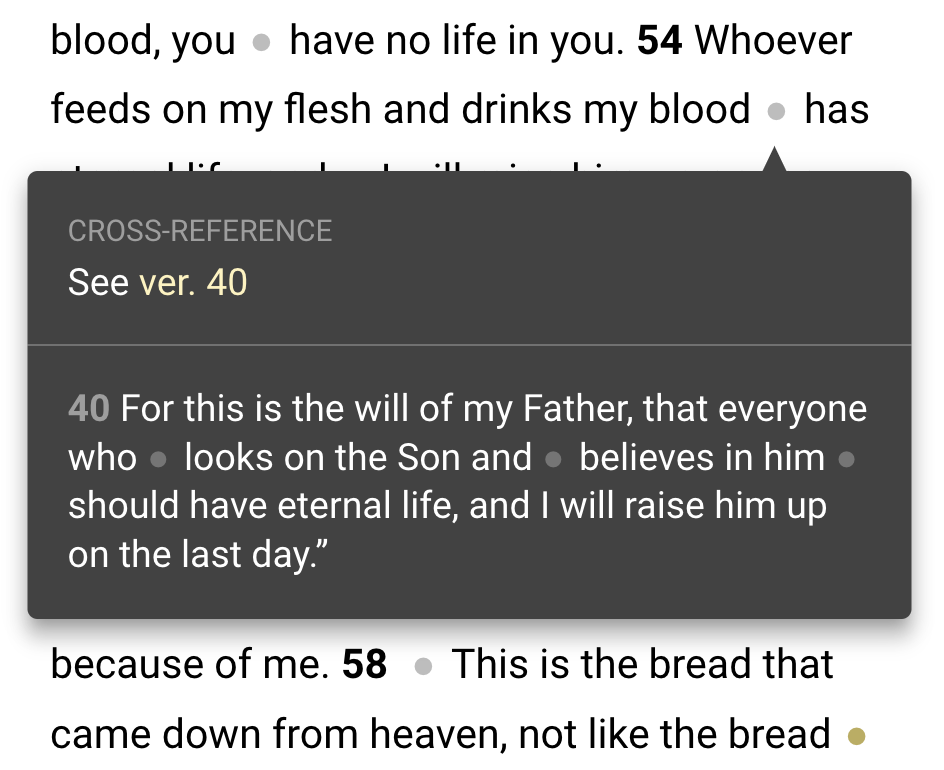Lesson 1 | Cross-References
Danger: Gutting a Text
Before we dive into the core content of each lesson, we will briefly warn you of one danger connected to the subject at hand. This is of great importance. Just like a power tool can make you far more effective and efficient in a building project, it can also do far more damage when used carelessly.

In this lesson, we will be bringing in an array of verses to our study of a particular passage. Doing so will help us better understand that particular passage in a variety of ways, as we will see in the steps to follow. But what such cross-referencing must never do is cancel out the plain meaning of our focus text.
For example, consider the scene in Luke 1 where the elderly priest Zechariah was met by an angel in the temple. He is told that his barren wife shall become pregnant and give birth to a son whom he is to name John. We then read:
18 And Zechariah said to the angel, “How shall I know this? For I am an old man, and my wife is advanced in years.” 19 And the angel answered him, “I am Gabriel. I stand in the presence of God, and I was sent to speak to you and to bring you this good news. 20 And behold, you will be silent and unable to speak until the day that these things take place, because you did not believe my words, which will be fulfilled in their time.” —Luke 1:18-20
The first ESV cross-reference from these verses is meant to give us insight into Zechariah’s question to the angel.

After examining the context of the Genesis 15:8 cross-reference (something we will learn about extensively in Lesson 2), you would find that this is Abraham asking a question of God. Like Zechariah, he is presented with a much-desired promise leading up to the question. And the two questions certainly have a similar ring to them: “How shall I know this?” and “…how am I to know…?”
But we would be in error to assume too much similarity. For example, Abraham is clearly asking his question with a heart of praise-worthy faith. We see this clearly two verses prior where, after receiving the promise, we read, “And [Abraham] believed the Lord, and he counted it to him as righteousness.” So should we not assume that Zechariah’s question is likewise coming from a heart of faith? No! But why not? Because, in response, we see that Zechariah is scolded and disciplined and told his question is an expression of unbelief (Luke 1:20). To ignore this clear teaching of the passage because of what we find in a cross-reference would be unbelief on our own part—a gutting of Luke 1:18-20.

Do NOT ignore the plain meaning because of what the cross-references say.
Certainly, we want to use the clearest passages in the Bible to interpret the more difficult ones. But this is not a license to explain away passages that make us uncomfortable. This is often done by:
- Labeling an undesirable passage as “difficult”
- Dismissing its clear meaning based on a mere inference we have drawn from another passage
When many of his disciples heard it, they said, “This is a hard saying; who can listen to it?”
John 6:60
Difficult passages may be difficult simply because they are “hard sayings” that we do not want to accept. After all, difficult passages do mean something.
A More Difficult Example
Let’s take a look at a portion of the “hard saying” in John 6, along with one of the cross-references found in these verses.
53 So Jesus said to them, “Truly, truly, I say to you, unless you eat the flesh of the Son of Man and drink his blood, you have no life in you. 54 Whoever feeds on my flesh and drinks my blood has eternal life, and I will raise him up on the last day. 55 For my flesh is true food, and my blood is true drink. —John 6:53-55

Certainly looking on and believing in Jesus are easier to stomach (pun intended!) than feeding on his flesh and drinking his blood. And indeed, this cross-reference will likely help us understand Jesus’ meaning better. But if there was no significance or importance to phrasing it the way it appears in John 6:54, then we wouldn’t have that verse in the Bible!
So what does eating/drinking Jesus mean beyond what we find in verse 40? I will leave you to ponder this.